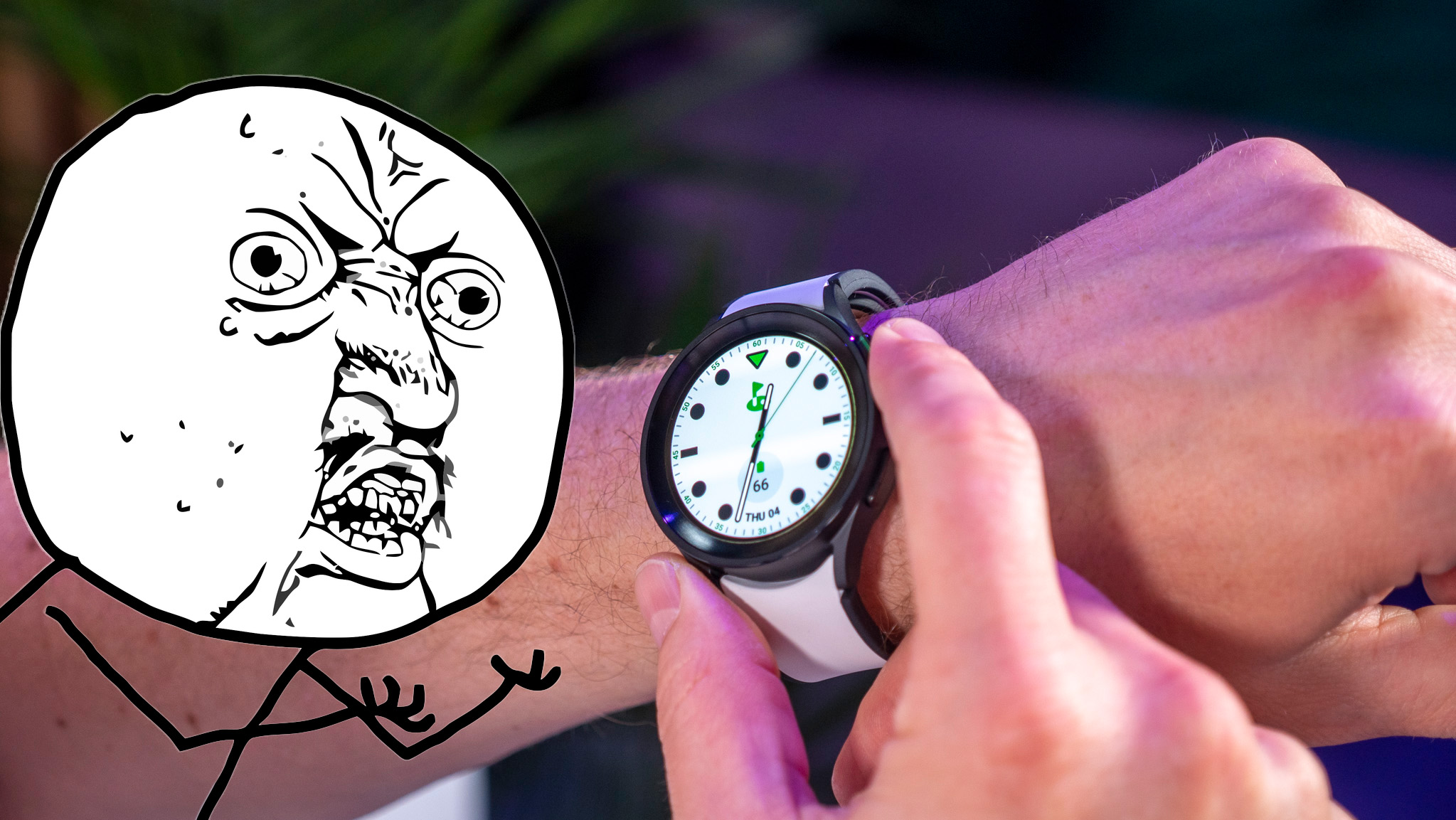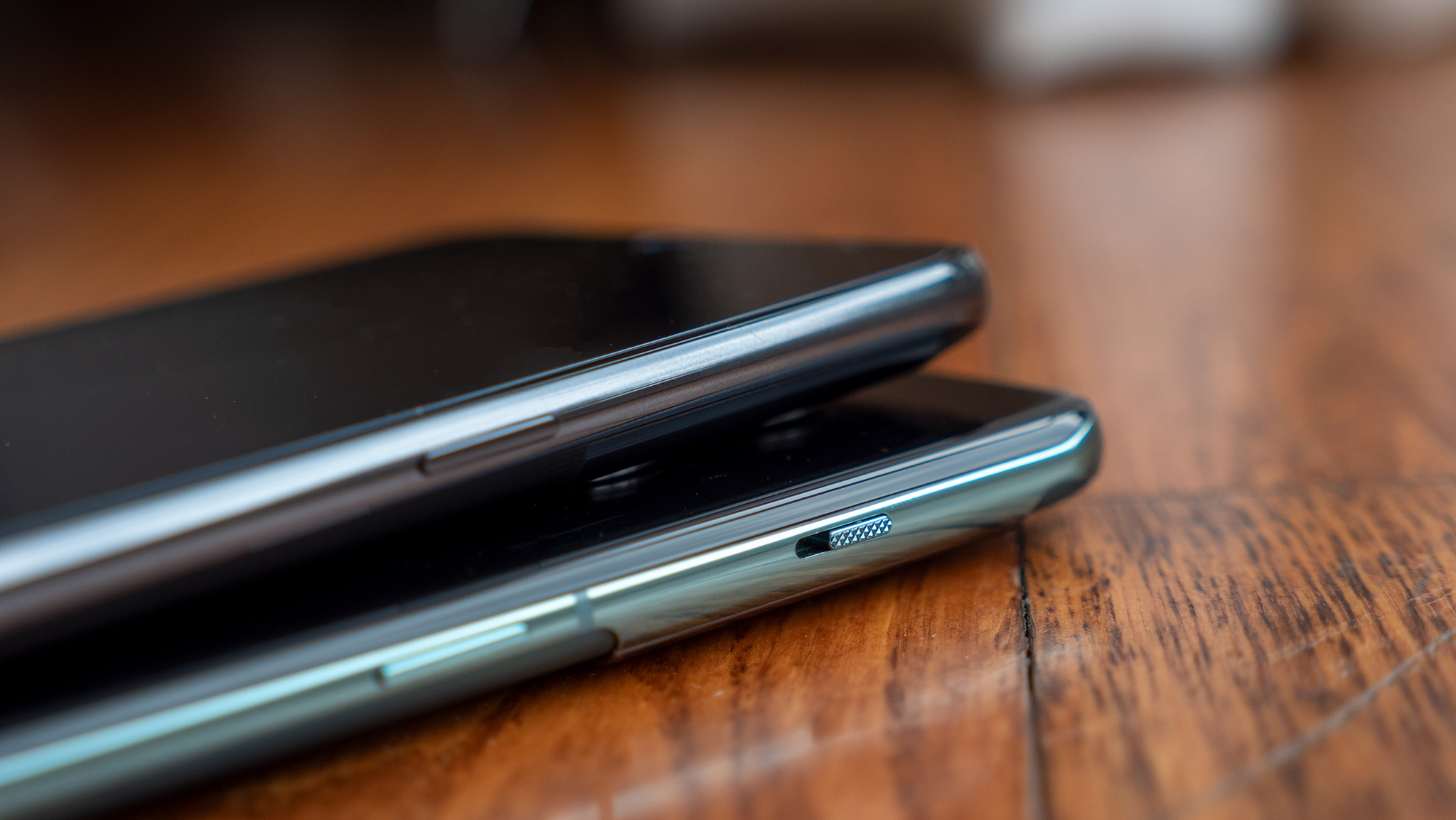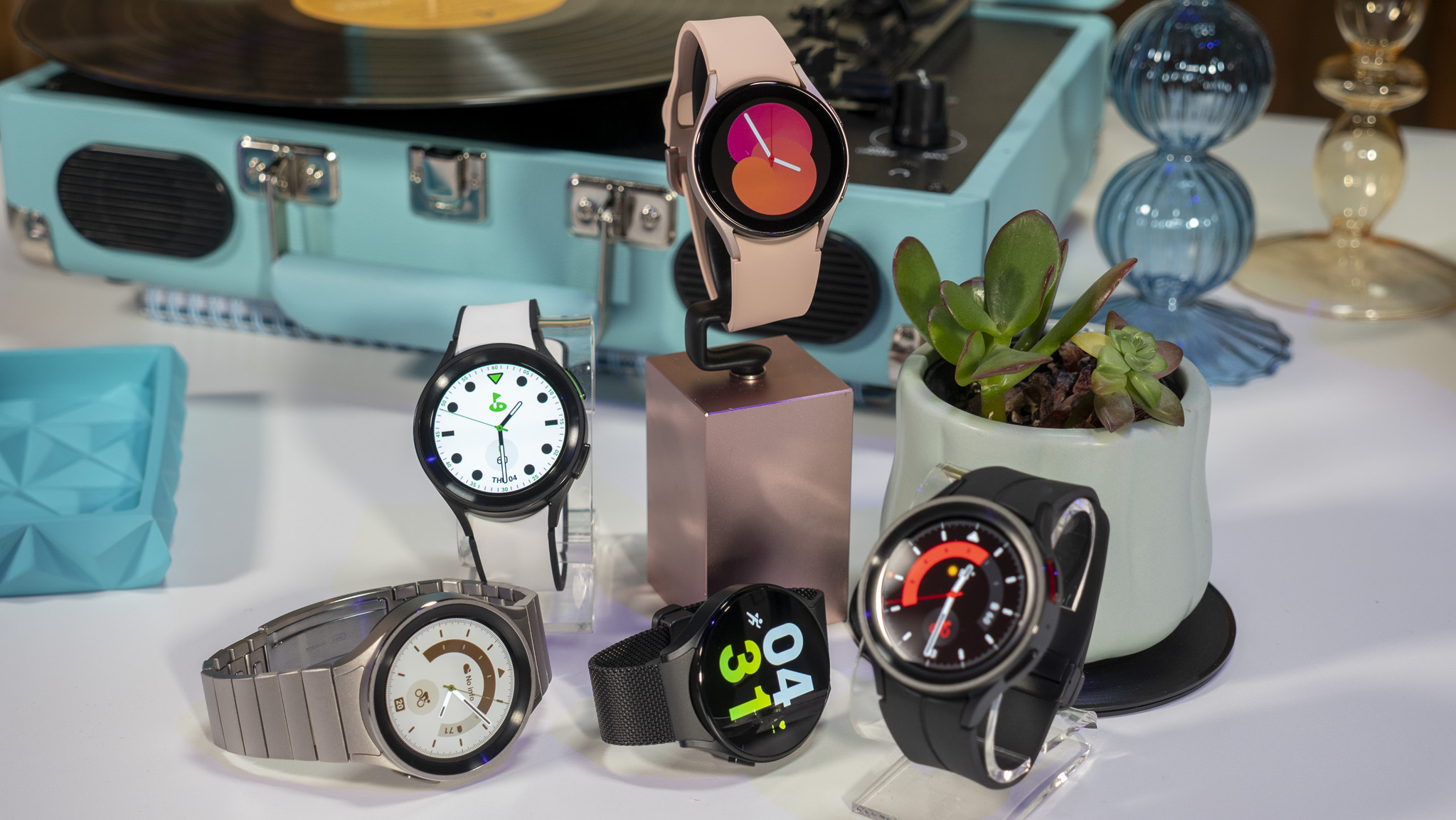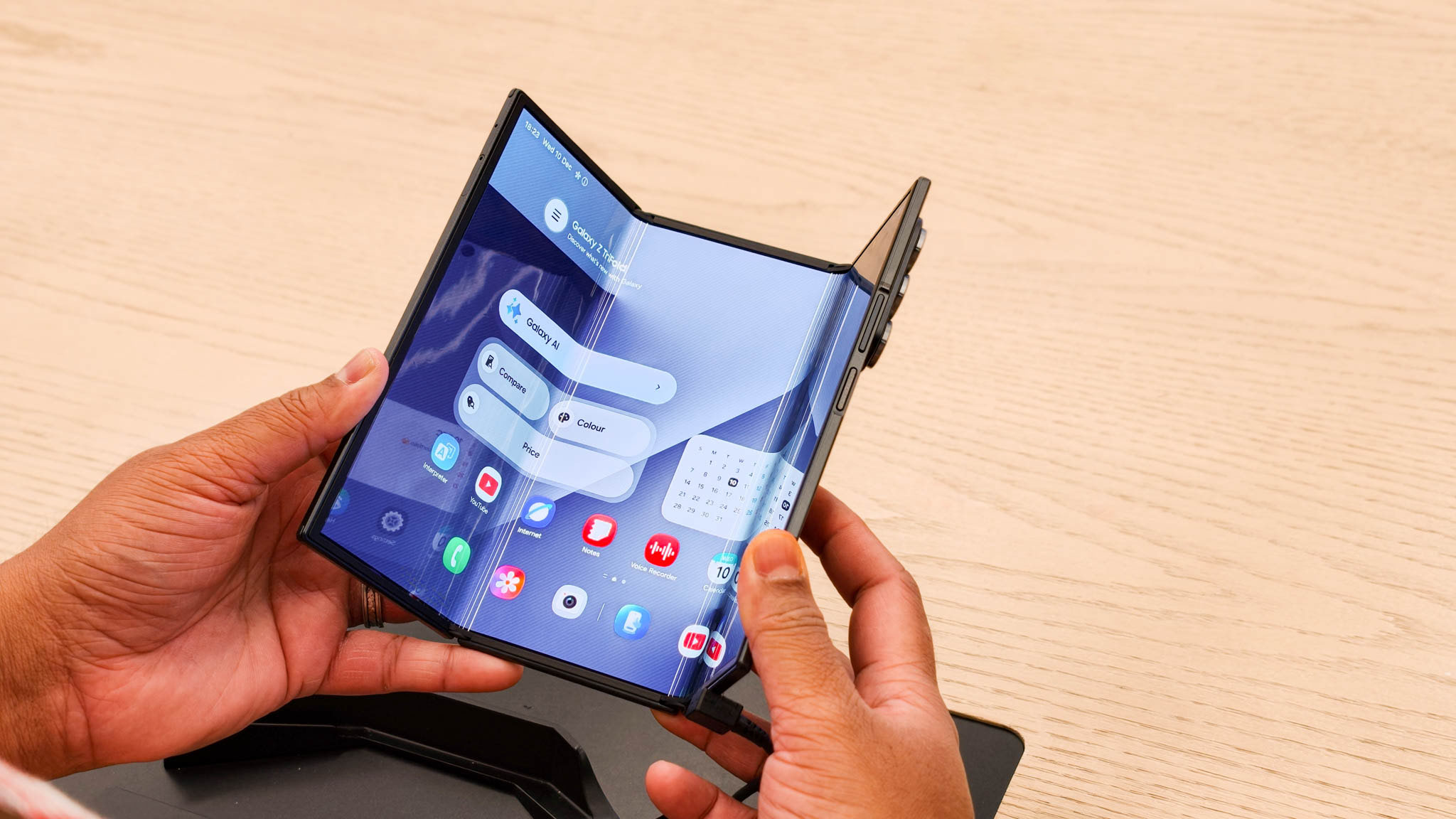Dear companies: Stop removing features people actually like
The OnePlus alert slider and Galaxy Watch rotating bezel are two recent examples.

When I first got my OnePlus 10T review unit on July 25, I was stunned — no, flabbergasted — to find that it didn't have an alert slider. It was bad enough for OnePlus to remove such a key feature from its Nord devices, but at least I could justify the omission based on the price of those phones. But on a flagship phone? Not so much.
Fast forward to just a week later, when I got my hands on the Galaxy Watch 5 Pro at a press event in New York City. All the rumors and leaks told me not to expect a physical rotating bezel, but given that basically all the best Samsung smartwatch generations had at least one model with such a feature, I hoped for the best.
Boy, was I disappointed.
Both of these unique, key hardware features were things that set each respective brand apart from the pack of similar-looking and feeling devices. Yet, both companies saw fit to remove them. Why? Not only did consumers love these two features, but they were key brand identifiers that simply should not have been removed.
This is a huge mistake

There's a reason Apple continues to use a hideous notch... you recognize the product the second you see it.
I'm sure you're thinking this is a "classic tech blog overreaction," right? Fair enough. Everyday users probably won't care all that much about either of these features going away. I doubt anyone at Samsung or OnePlus will lose sleep over the small number of users that allegedly won't buy the latest gadget over a relatively unimportant feature loss.
But that's not the point.
Sure, the main goal of any company is simply to make money, and annual product release cycles ensure that R&D investments can be recouped in fairly short order. But a brand, by definition, must do what it can to differentiate itself from other brands to sell more of its products than other brands.
Get the latest news from Android Central, your trusted companion in the world of Android
At the very least, a brand needs to look visually distinct in a sea of people wearing and using similar products. There's a reason Apple continues to use a hideous notch on its phones and laptops, continues to make only square smartwatches, and sells millions of earbuds that distinctly look like the end of a toothbrush is hanging out of someone's ear. You recognize the product the second you see it. Ugly or not, they're iconic.
After all, who would buy an Oreo just because it says Oreo on the label and not because it tastes better or offers more flavors? No one, that's who. Especially if that name brand is priced higher.
I've never met a person who actually liked the capacitive bezel, and can't wrap my head around why Samsung would continue to push such a feature.
The same logic applies to smartwatches or smartphones. For years, OnePlus phones have differentiated themselves in a few key areas. They were usually one of the fastest — if not the fastest — phones you could buy. They had clean, yet feature-rich software. They also had an alert slider, which no other Android phone could claim.
But two of those three features have slowly slid off the tracks over the past few years. While OxygenOS 13 might be the beginning of OnePlus getting back to its software roots, there's no actual guarantee that the alert slider will make its way back to the company's next flagship phone after its removal on the OnePlus 10T, and several OnePlus Nord phones, to date.
Similarly, we've seen Samsung slowly remove the physically-rotating bezel since the launch of the original Galaxy Watch Active. I've never met a person who actually liked the capacitive bezel, and can't wrap my head around why Samsung would continue to push such a feature. Yet, here we are in 2022, and no new Galaxy Watch has a physically-rotating bezel.
Sigh.
Homogenized. Like milk.

Before this year, it was pretty easy to choose a smartwatch that had a rotating bezel, or a phone with an alert slider.
When you go to the milk aisle in the grocery store, how do you decide what milk to get? While non-dairy alternatives have created a market for brand preference — thanks to the wild variations in production methods and the subsequent end result — most people probably pick up a gallon of regular old cow milk solely based on price.
That's because, with the exception of animal husbandry practices, there's basically no difference between these products aside from packaging, price, and branding.
In a way, the smart device world feels like it's slowly heading in this direction. Without those big differentiating features that folks love, it's harder to make an immediate decision when faced with a wall of options at our favorite electronics store.
After all, before this year, it was pretty easy to choose a smartwatch that had a rotating bezel, or a phone with an alert slider. You really only had one main choice from each category in the Android world.
Personally, I hope this year's product release cycles are an anomaly and we see the return of these much-loved features next year. After all, Samsung knows that people love the rotating bezel. It's keeping the Galaxy Watch 4 Classic on shelves after the release of the Galaxy Watch 5 Pro for a reason.
I've been using OnePlus phones for years, and list the alert slider in the "positive" column in every single review. I love it, fans love it. Sure enough, during the initial review process for the OnePlus 10T, OnePlus released a rather lengthy statement on the missing alert slider. In it, OnePlus defended its removal from this one device and promising that the team will do its best to reintroduce the slider next time around.
Engineering a fast, sleek, light, and feature-rich device is no easy task, despite the annual release cycle warping our paradigms. I understand it's a challenge to incorporate everyone's favorite features into every hardware release. But I'd like to implore companies like Samsung and OnePlus to seriously consider how important these types of features are to consumers, especially folks who buy a specific brand for a specific reason.
Don't abandon your base, and don't forget what makes your products unique and exciting.

